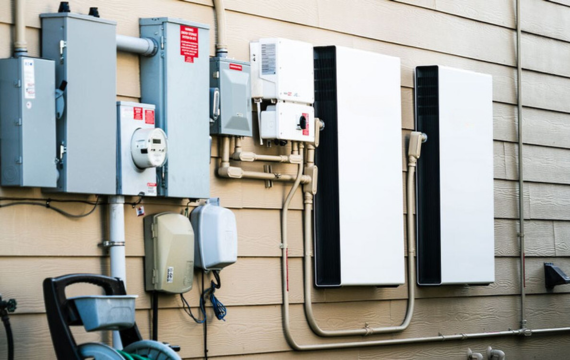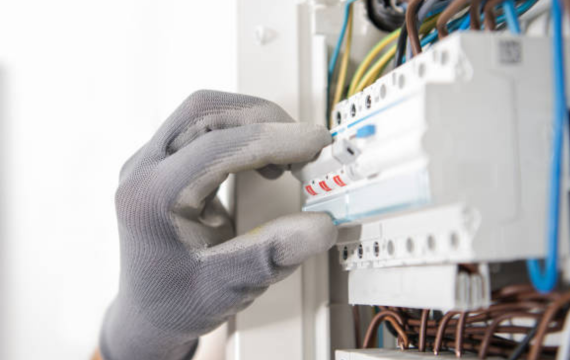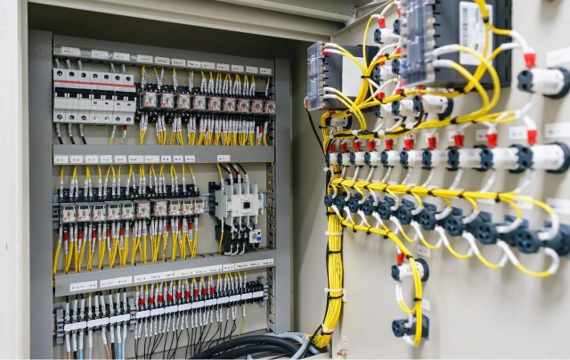An electrical panel primarily controls how energy is distributed throughout your home or structure. A breaker box, on the other hand, is the equipment that houses the main electrical switch and prevents overloading.
Electrical Panel: What Is It?
The electrical system of any building must include an electrical panel. Its major responsibility is to distribute power from the main electrical supply to various circuits located throughout the building. Each circuit on the panel is protected from overloads and short circuits by the fuse or circuit breakers.


Breaker Box: What Is It?
A breaker box is an important part of any structure’s electrical system. It is the major hub for distributing power to the building’s many circuits. The primary purpose of a breaker box, which stores fuses or circuit breakers, is to protect and regulate electrical lines.
Comparing the Pros and Cons of Electrical Panels Vs Breaker Boxes


Electrical Panel Pros
Centralized Command: Centralized control for a building’s electrical circuits is provided by electrical panels, commonly referred to as distribution boards or breaker panels.
Well-Ordered Circuitry: Multiple circuit breakers are arranged neatly and methodically thanks to the design of panels, which also serve as storage spaces.
Extensibility: Buildings with increasing power demands can benefit from the increased capacity of electrical panels to house circuit breakers.
Enhanced Security: Main disconnect switches, which may instantly cut off electricity to the entire building in the event of an emergency or maintenance, are among the many safety precautions that panels frequently have installed.
Electrical Panel Cons
Expenses: Buying and installing an electrical panel usually carries a larger upfront cost when compared to a breaker box.
Space Needs: Comparing individual breaker boxes to electrical panels, the latter may require more room due to their bigger size.
Intricate Installation: Because electrical panels are complex, installing one could take a professional’s knowledge and skills.
Breaker Box Pros
Budget-friendly: Often less expensive than electrical panels, they are a better choice for smaller installations or projects with tighter budgets.
Easygoing: They are suited for applications where a more basic power distribution system will do, due to their ease of construction and installation.
Efficiency in Outer Space: Compact installation or cramped space: It is a more space-efficient alternative because it requires less area than a larger electrical panel.
Breaker Box Cons
Decreased Monitoring and Enforcement: The absence of centralized monitoring and control components present in breaker boxes and electrical panels may result in management problems.
Reduced Safety Components: Main disconnect switches are an example of a modern safety feature that is necessary for emergencies or maintenance.
Restricted Ability: Breakers can support a finite number of circuits.
Differences Between Electrical Panel Vs Breaker Box

- An enclosure or assembly comprising different electrical components, such as fuses or circuit breakers, is referred to as an “electrical panel” in a general and inclusive sense.
- It might have parts that aid in the distribution of electricity throughout a structure, such as bus bars, grounding apparatus, main disconnect switch, and other parts.

- For the distribution board or panel board that contains the circuit breakers, the term “breaker box” is more descriptive and is frequently used colloquially.
- People may refer to the panel that houses individual circuit breakers as the “breaker box” in everyday speech.
Ideal Uses of Electrical Panel

Distribution of Power
- It guarantees that power is adequately distributed to various locations and devices.
Circuit Protection
- They promptly switch off the power supply to prevent damage to electrical equipment and to reduce the risk of electrical fires.
Emergency Power Systems
- In the event of a power outage, they guarantee a smooth transition to back up power sources.
Safety and Compliance
- Electrical systems are designed to follow a set of guidelines and requirements in order to ensure that they are installed and operated safely.
Modular Expansion
- The electrical system may be easily expanded or modified thanks to the modular design of the panels.
Smart Building Integration
- This promotes energy efficiency and overall building management by enabling remote monitoring, control, and automation of electrical equipment.
Industrial Control Panels
- PLCs (programmable logic controllers), relays, and motor starters are among the parts they contain that are used to operate intricate industrial systems.
Data Centers
- To reduce downtime, they frequently have redundancy features.
Commercial and Residential Applications
- Both residential and commercial buildings utilize electrical panels to control how power is distributed for lighting.
Renewable Energy Integration
- Renewable energy systems, such as those that use wind or solar power.
Fire Alarm Systems
- They ensure the dependability of these crucial safety systems.
HVAC Control
- HVAC (heating, ventilation, and air conditioning) systems are controlled and distributed in part by electrical panels.
Ideal Uses of Breaker Box

Circuit Protection
- keeps the electrical equipment and wiring safe.
- Protect against electrical shorts.
Electrical Distribution
- Permitting the use of electrical equipment such as lights and appliances.
- Larger homes or buildings can further distribute power to particular floors or sections by connecting subpanels to the main breaker box.
Safety and Fire Prevention
- Lowering the possibility of electrical fires brought on by improper wiring or overheating.
- Shielding the body from electric shock and shock.
Remote Control and Monitoring
- Electricity usage can be remotely monitored and controlled through integration with smart home systems.
- Energy management, convenience, and safety all benefit from this.
Renewable Energy Integration
- Breaker boxes can work in tandem with solar panel systems to control how solar energy is distributed within or to the grid.
Commercial and Industrial Applications
- Breaker boxes manage three-phase power distribution in commercial and industrial environments to support large machinery and industrial equipment.
Emergency Power Systems
- To facilitate a smooth transition to emergency power during blackouts, breaker boxes can be made to attach to backup generators.
Code Compliance
- Breaker box use and installation must adhere to electrical codes and standards to promote safety and eliminate risks.
Electrical Upgrades
- When buildings are enlarged or remodeled, breaker boxes can be modified to handle the increased electrical demand.
Home Automation Integration
- For energy-efficient management, breakers can be linked with home automation systems, giving consumers the ability to plan and regulate power consumption.



